
The Obama administration's latest decision to appoint Caroline Kennedy, daughter of former president John Kennedy, as the new ambassador to Japan has sparked heated debate in both the US and Japan.
Many diplomatic observers think it is just an ornamental appointment, casting doubt on why President Barack Obama nominated Kennedy, who has no experience in governmental and public affairs, to such an important diplomatic post.
Yet there are several reasons accounting for it. First, the 55-year-old New Yorker was born with the desire to be involved in politics or public service. It is natural for her to start her political career with the Japan ambassadorship despite her being far away from the political circle in early life.
Next comes a historical factor that has been long ignored: Obama may have made the decision to evoke the good sentiments of the John Kennedy era.
Before John Kennedy served as the US president during 1961 to 1963, the US-Japan relationship experienced some turbulence after Japanese students started to protest the ratification of the Treaty of Security and Safeguard Between Japan and the US.
The campaign did not stop the ratification, but unseated the then prime minister Nobusuke Kishi in 1960.
President Kennedy thus appointed Edwin O. Reischauer, a renowned expert in Japanese culture and history, as the ambassador to Japan. Reischauer and his Japanese wife contributed a lot to easing US-Japan tensions by helping formulate the framework for US policies on Japan.
So the public will naturally associate Obama's Reischauer-like nomination with this specific historical period. From this perspective, Obama made a wise choice.
Third, the Japanese, with their strong sense of hierarchy, will warmly welcome Caroline Kennedy as they enjoy having high-profile ambassadors.
It will be exciting news to the Japanese people, who value their intimate friendship with the US. In a country obsessed with the power of the Kennedy family, Caroline Kennedy's charm will probably serve as a subtle antidote to growing concerns among Japanese officials that Japan is gradually being overshadowed by China, its major regional rival.
The nomination will also send a message to the Japanese government that the US is beginning to reemphasize its position as the most important ally in Asia.
Furthermore, in a male-dominated society, the appointment of a female envoy will surely inject new vitality into the country.
With her predecessors including such celebrities as former Senate majority leader Mike Mansfield, former vice president Walter Mondale and former House speaker Tom Foley, Caroline Kennedy will not be the first "superstar" envoy to Tokyo.
And compared with them, she still lacks expertise, experience, as well as a broad web of contacts to cope with some of the toughest disputes between the US and Japan.
She is thought to have the ability to properly handle the issue concerning the Trans-Pacific Partnership as Japanese Prime Minister Shinzo Abe faces fierce opposition at home while making enormous efforts to get Japan to sign on to the regional trade pact.
But it is also predicted that she will have difficulty in addressing complex military issues including the relocation of the Futenma Air Base.
What's more, at a critical moment of geopolitical struggles in East Asia, tackling Japan's relations with other countries in East Asia constitutes another challenge.
China and Japan are still squabbling over the Diaoyu Islands, both South Korea and China condemn Japan for its stance on historical issues, the situation on the Korean Peninsula still remains uncertain, and China seems to have taken on a more intimate relationship with Russia.
The decision to make Kennedy the new ambassador may play a decisive role in helping Japan resume or develop its relations with these neighbors instead of gradually becoming isolated in the strategically significant region.
But whether she will be qualified to take up this important post remains to be seen. And how she will respond to the difficulties will be key to Japan's relations with other countries in East Asia.
This article was compiled by Global Times reporter Wang Xiaonan, based on an interview with Liu Shilong, a research fellow with the Institute of Japanese Studies of Chinese Academy of Social Sciences. wangxiaonan@globaltimes.com.cn

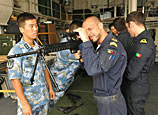
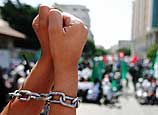
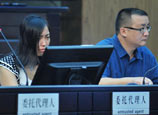
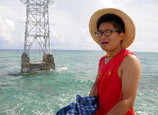
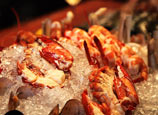



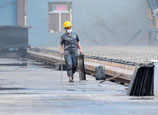






 Quadruplet sisters and their family
Quadruplet sisters and their family


![]()
